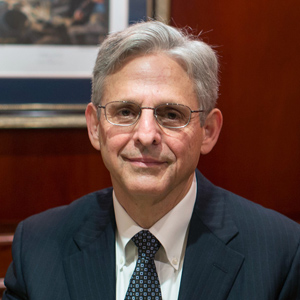Merrick Garland lists his top 10 cases in Senate questionnaire

U.S. Supreme Court nominee Merrick Garland has a reputation as a moderate, but the 10 cases he lists as his most significant opinions showcase his support for the underdog.
That’s the take of USA Today, which covered Garland’s answers along with the National Law Journal (sub. req.), the Wall Street Journal (sub. req.), the New York Times and the Washington Post. How Appealing links to Garland’s answers (PDF), which span 141 pages. With appendices and attachments, the document includes 2,066 pages.
According to USA Today, Garland “is most proud of his appeals court decisions protecting human rights, workers’ rights, open government, clean elections and freedom of the press.”
The decisions listed included opinions in which Garland:
• Upheld an agency ruling blocking a housing development because it would endanger the arroyo southwestern toad.
• Ruled the government had not proven a Guantanamo Bay detainee should be classified as an enemy combatant.
• Found that the CIA could not refuse to confirm or deny its drone program in a suit by the American Civil Liberties Union, given the president’s acknowledgement of the program.
• Held the Federal Trade Commission had defined news media organizations too narrowly when it refused to grant a fee waiver to a conservative nonprofit in a freedom of information case.
• Upheld election rules barring federal contractors from contributing to federal campaigns.
• Overturned a narcotics conspiracy conviction of a man who worked for a legitimate business run by drug conspirators.
• Dissented from a decision protecting government contractors from liability for Abu Ghraib abuses.
• Found in a suit against United Air Lines that an employment discrimination complaint did not need to set forth the elements of a prima facie case in order to survive a motion to dismiss, a decision which was later affirmed by the U.S. Supreme Court.
• Reversed a decision granting summary judgment against plaintiffs who were American citizens of Panamanian and Hispanic descent alleging intentional employment discrimination.
• Dissented from a Roberts opinion that found Amtrak wasn’t a government body, and as a result two contractors who delivered defective rail cars to Amtrak weren’t guilty of violating the False Claims Act.
Because Republicans oppose Garland’s nomination, they provided him with the standard questionnaire rather than the tailored document customarily given to Supreme Court nominees, the Times reports.
Updated at 12:32 p.m. to complete the list of 10 cases mentioned by Garland.



